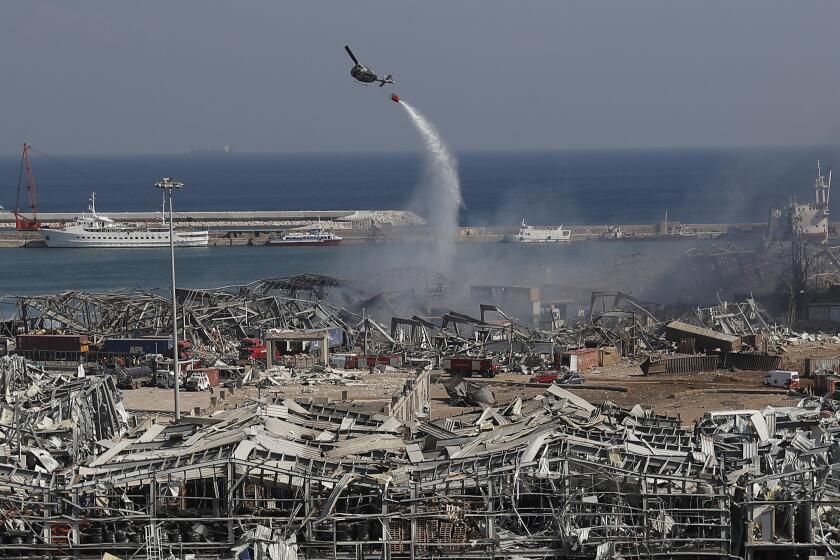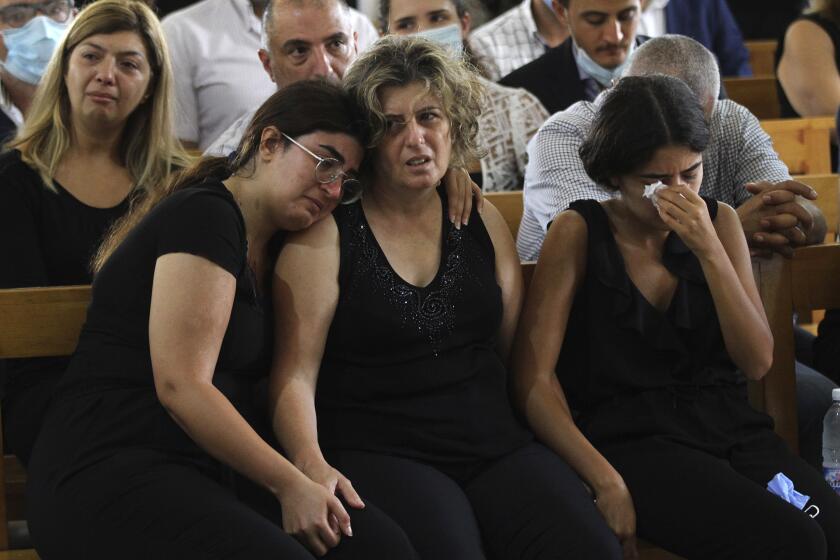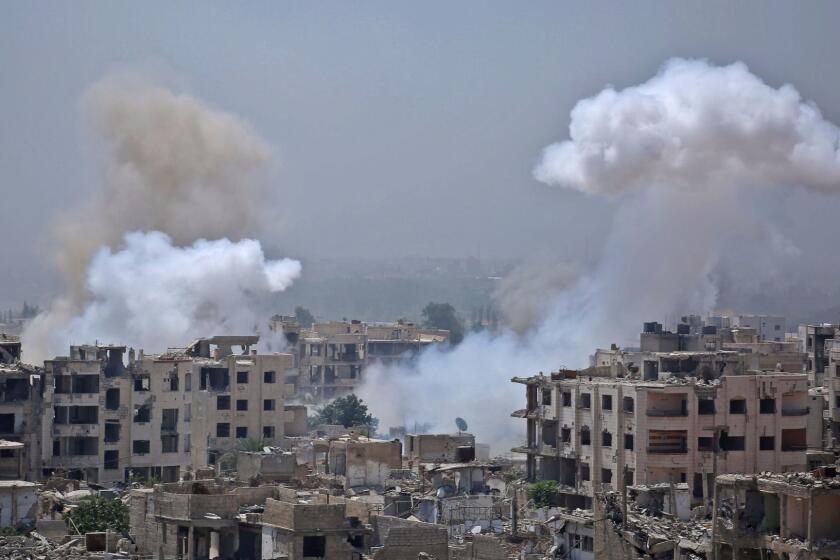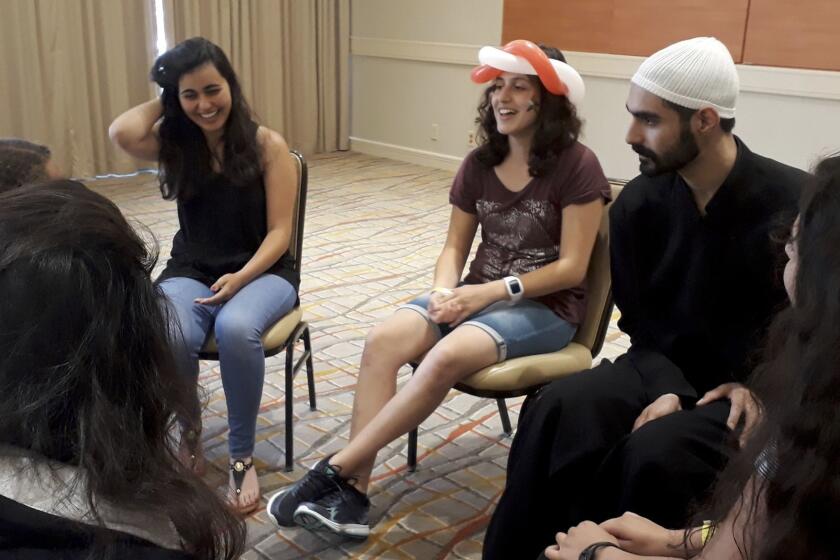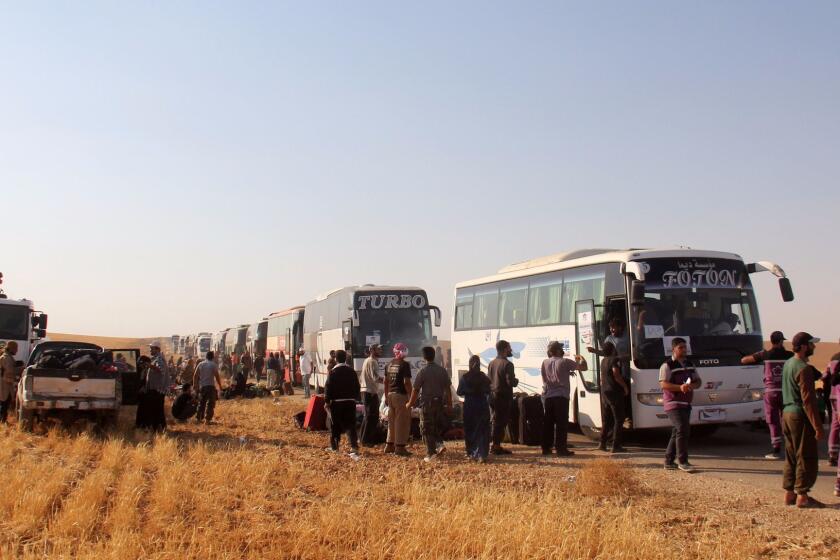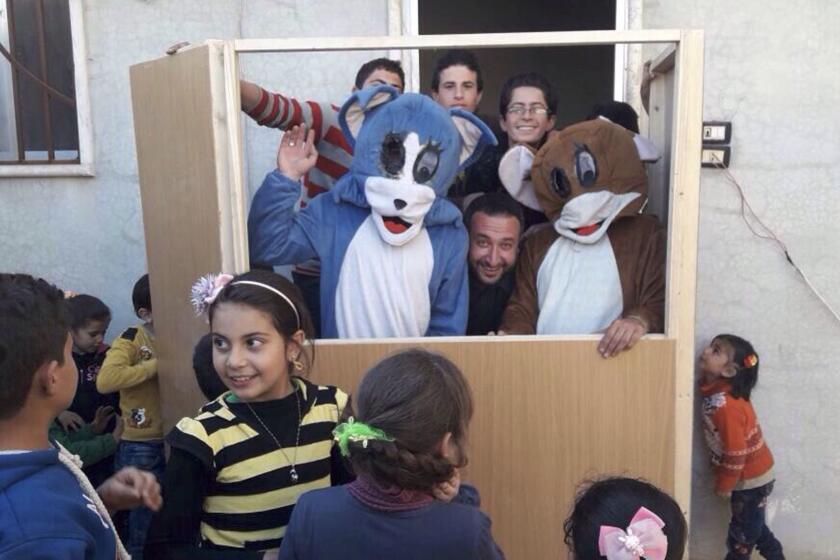
Abby Sewell
Former Los Angeles Times staff writer Abby Sewell previously covered Los Angeles County government. She started her journalism career at community newspapers in Molalla, Ore., and Barstow before attending graduate school at Northwestern University’s Medill School of Journalism. She joined the Los Angeles Times in 2010 and left in 2016. Sewell was part of the team that covered municipal corruption in Bell and the cities of southeast Los Angeles County, leading to the Times’ Pulitzer Prize for public service in 2011. She also contributed to coverage of the Isla Vista shootings, a finalist for a Pulitzer in 2015 in the breaking news category.
Latest From This Author
In aftermath of Beirut explosion, skepticism grows among members of the public and the international community.
Antes de la explosiĂłn masiva que sacudiĂł LĂbano, muchos pensaron que el paĂs ya habĂa tocado fondo
Through tears in Beirut, Lebanese survivors share stories of missing loved ones
The Beirut explosion was likely caused by fireworks and ammonium nitrate, experts and video footage find. But now more difficult questions arise.
Days after the Trump administration issued a call for a cease-fire in Yemen’s protracted civil war, humanitarian organizations warned of the likelihood of severe escalation in civilian casualties, particularly in the port city of Hudaydah.
As international attention has shifted to the fight against Islamic State militants in eastern Syria, a little-noticed but bitter struggle continues on the outskirts of the capital, Damascus.
Reem Kaedbey was never very religious. She’s not even sure there is a God.
Ayman Hujairi’s stone quarry in the barren hills outside the town of Arsal on Lebanon’s northeast border closed its doors after fighting broke out between Syrian militant groups and the Lebanese army three years ago.
For the second time in a matter of weeks, thousands of rebel fighters and civilian refugees who had found a haven in Lebanon are being transported back to Syria to live in what is being billed as a “safe zone” in the war-torn country.
Every time he gets the chance, Ayham Hilal, an Internet cafe proprietor in the Syrian city of Saraqeb, squeezes into a small community center with about 200 fellow theatergoers and loses himself in a comedy show.

